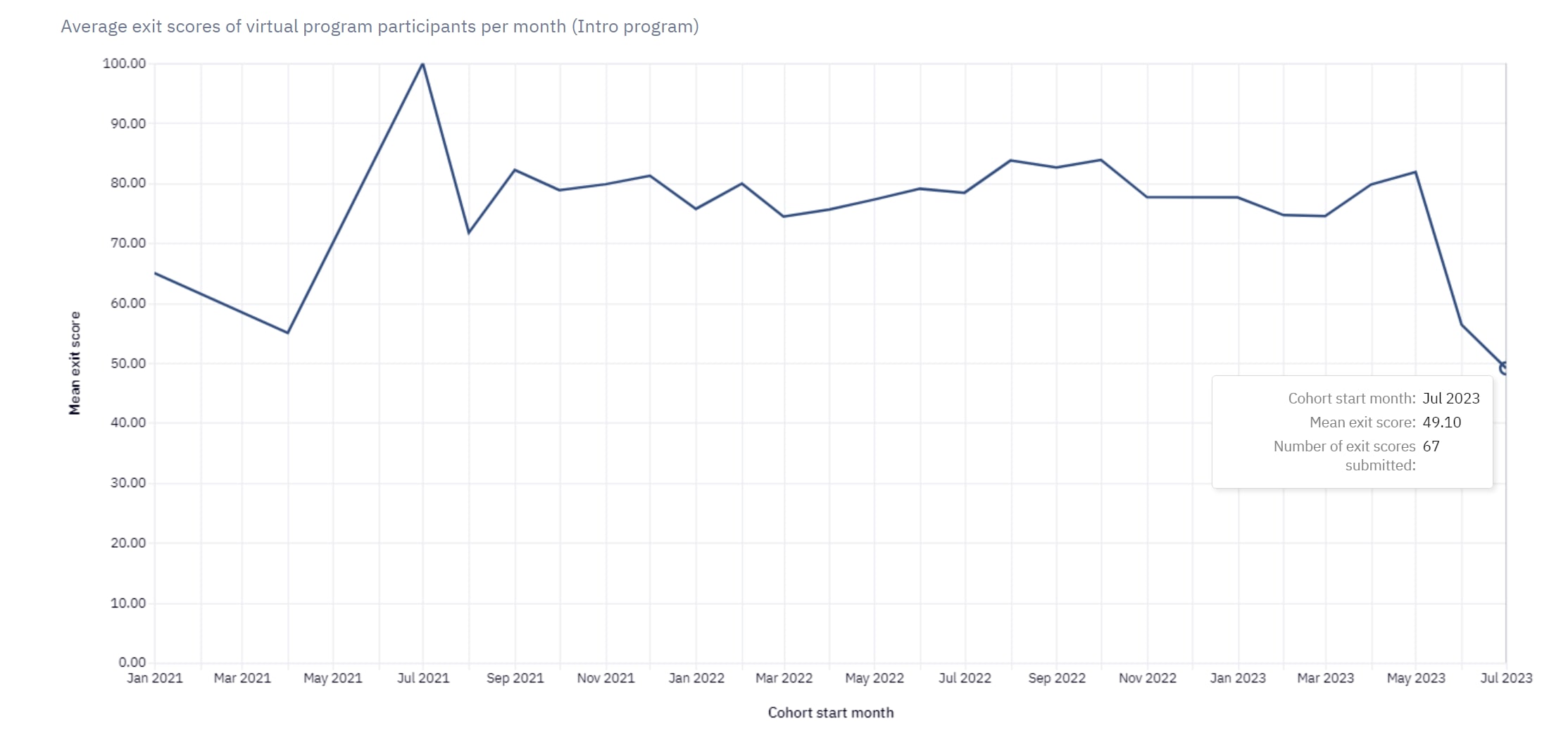Defacto
Comments11
example reasons:
- someone with a different vision has started and there's some rough spots to smooth out
- someone with a different vision has started and this is exactly the correct score produced by their correct programs
- there was gaming or gardening of the scores and this gardening stopped
- staff left or anticipates leaving after funding pulled, and have a "schools out" mentality, e.g. participants showing up to empty zoom meeting
reception to the surprise SBF appearance less positive than expected
BTW, I kind of see Alex L as one of the "best EAs" and I sort of attribute this issue to the forum, and now sort of reinforces my distrust of EA discourse (like, I think there's an ongoing 50 comment thread or something because a grantmaker asked someone if english was their second language, come on).
Your reply contains a very strong and in my view, highly incorrect read, and says I am far too judgemental and critical.
rhetorical move of criticising someone who says their top priority is X for not caring at all about Y.
Please review my comment again.
- I'm simply pointing to a practice or principle common in many orgs, companies, startups and teams to have principles and flow from them, in addition to "maximizing EV" or "maximizing profits". This may be wrong or right.
- I'm genuinely not judging but keeping it open, like, I literally said this. I specifically suggest writing.
While this wasn't the focus, I haven't thought about it, but I probably do think Chana's writing is virtuous. I actually have very specific reasons to think why the work is shallow, but this is a distinct thing from the principle or choice I've talked about. Community health is hard and the team is sort of given an awkward ball to catch.
An actual uncharitable opinion: I understand this is the EA forum, so as one of the challenges of true communication, critiques and devastating things written by "critics" are often masked or coached as insinuations, but I don't feel like this happened and I kind of resent having to put my comments through these lenses.
I think the protests could benefit from "gears-level" detail on the sort of proximate effect as well as medium-long term effects:
- What literally do people do in a protest, how should they dress, speak, what impression should they induce in their audience and what is their audience?
- What could the medium or long term effects of the protest be? E.g. press, online discussion, awareness, sentiment
I think there is a good understanding here based on the comments from the OP below. Note that this doesn't have to be airtight or 100% accurate. But this would help discourse and understanding.
I'm slightly worried/skeptical that the discourse around them isn't high-quality, e.g. many of these comments are speculative expressions of personal feelings.
But we often won’t resolve a situation to the satisfaction of everyone involved, or do everything that would be helpful for individuals who were harmed. Ben mentions people “hoping that it [Community Health] will pursue justice for them.” I want to be totally upfront that we don’t see pursuing justice as our mission (and I don’t think we’ve claimed to). In the same vein, protecting people from bullies is sometimes a part of our work, and something we’d always like to be able to do, but it’s not our primary goal and sadly, we won’t always be able to do it.
A design decision to not have "justice" or "countering bullies" seems sort of big and touches on deep subjects.
I guess this viewpoint above could be valid and deep, (but I'm slightly skeptical the comm. health team has that depth).
It seems possible that, basically, just pursuing justice or countering bullies in a straightforward way might be robustly good and support other objectives. Honestly, it doesn't seem that complicated, and its slightly a yellow flag if it is hard in EA.
I think writing on this (like Julia W's writing on on her considerations, not going to search it up but it was good). Such a piece would (ideally) show wisdom and considerations that is illuminating.
I'll try to produce something, maybe not under this name or an obvious form.
Women in longtermism and EA are consistently better in respects of character, responsibility and diligence (there are outliers in animal welfare, who have been power-seeking for ideological and been destructive, implicated in ACE's fate, but that's probably because of the demographics).
Women do not engage in as much power-seeking as much or interact as poorly with the social fictions/status/funding dynamics that produce bad outcomes in EA (they tend to do more real things).
As we will see, even Caroline did the "least crime". In the non-linear case, my guess is that Kat Woods was more self-involved and highly unqualified as a manager, with less tones of systemic malice that Emerson gives off.

